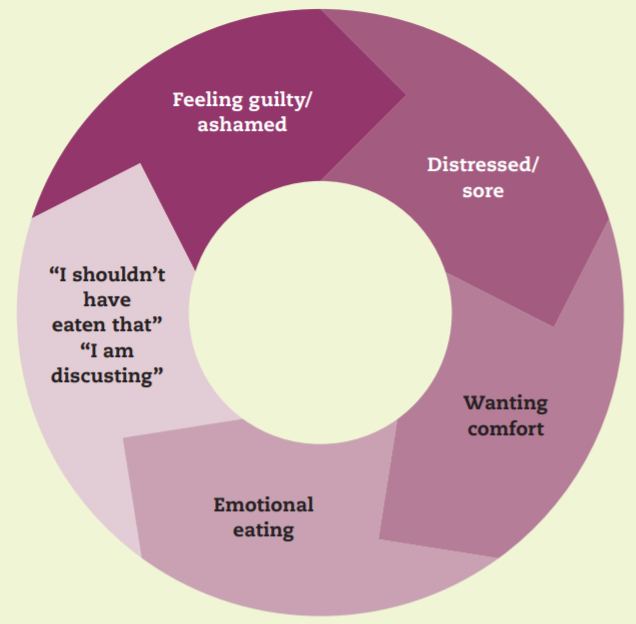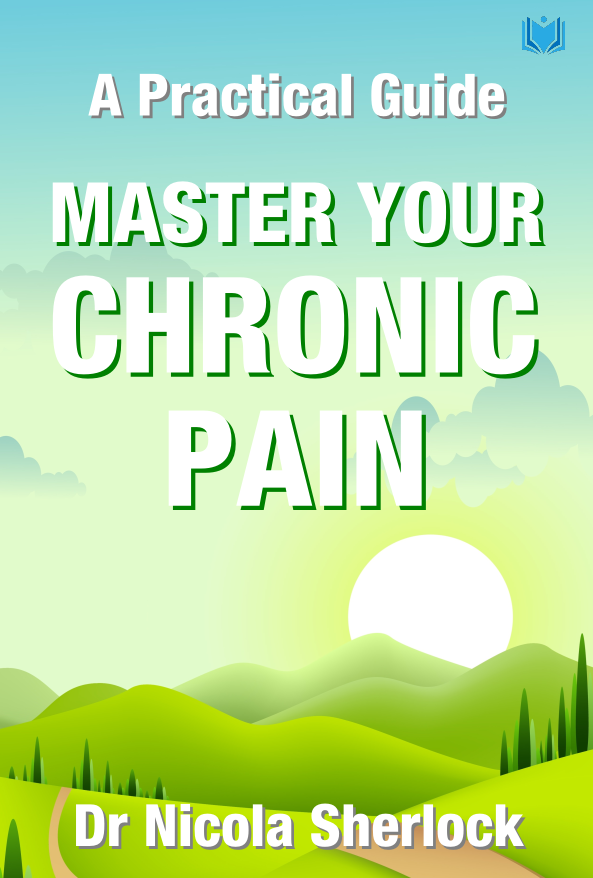People often start the year with good intentions but around about now is when most lose their motivation, no more so than when it comes to eating. And emotional eating habits are hard to break! Here, Dr Nicola Sherlock shares some strategies for dealing with emotional eating so you can support yourself and your health this year.
Food is used throughout the world as an expression of love – think of a meal you cooked for your partner for a special occasion, or that box of chocolates on Valentine’s Day. Sharing food with people you love is one of life’s greatest pleasures.
Food is also universally used to comfort and alleviate distress. As a new mother, when my baby was distressed and crying, one of the first things I did was to offer him some milk, even if I wasn’t sure he was hungry. Given our experiences in our formative years, is it any wonder we use food as a comfort?
There is nothing at all wrong with using food as an expression of love or for comfort. But what happens if food becomes your main way of showing love to yourself or comforting yourself? What happens if you often use food to manage your distress? We know that when we are distressed and in need of comfort, we tend to reach for sugary and unhealthy foods.

Make small changes
One of my patients, let’s call her Sophie, wanted to improve her diet and lose weight. She told me that periodically she declared, ‘That’s it – I am only going to eat low-calorie food.’ She usually skipped breakfast, ate a small green salad for lunch and a small dinner mainly consisting of vegetables. Can you imagine how long this new regimen lasted?
Sophie sometimes managed to get to Friday before she caved in and ordered a Chinese takeaway, washed it down with wine and followed dinner up with a bag of crisps in front of the TV. She typically went to bed on Friday night feeling guilty and angry with herself.
She then adopted an all or nothing approach to her eating and would go back to an unhealthy diet of processed and high sugar foods for a week or two until she declared she had enough and began eating a very rigid, restricted diet again.
To break this cycle, I encouraged Sophie to change one or two things first and then build upon that. Instead of eating a low-calorie, restricted diet, Sophie decided she would eat at least one nutritious meal every day for a week. Then, she decided to introduce a second nutritious meal every day the following week. Finally, she aimed to eat three nutritious meals on most days.
Sophie recognised that when she “went on a diet”, she was too rigid with her food. You do not have to radically change your diet overnight. Like Sophie, it can be helpful to plan smaller changes that you can implement over time.
8 ways to reduce your level of emotional eating

Plan ahead
You want to plan what you are going to eat, when you are going to buy your food and when you are going to prepare your food. This planning can make it much more likely you will be able to improve your diet.
Keeping frozen vegetables in the house can be helpful. They are healthy, make life easy and don’t need to be washed or chopped. Many people also find it helpful to batch cook meals and freeze them. A slow cooker is a great, relatively inexpensive addition to a kitchen. You can add your ingredients quickly, just turn it on and forget about it while a healthy meal is cooked.
Removing unhealthy food from the house is also a good idea. If you don’t have any cakes or crisps in the cupboard, it is less likely that you will go to the bother of leaving the house to get some.
Find your why
It can be difficult to make changes to your diet. Everyone is drawn to stay within their comfort zones after all. But if you’re clear about your “why”, you are more likely to make the changes that you need to.
Take out a notebook and write down your reasons for why you want to make changes to your diet. It is best to frame these reasons positively. For example, write “I want to have more energy” rather than “I want to stop feeling tired all the time.”
Write down everything you can think of – some reasons may be related to your health and some may be related to your body image or self-confidence. Keep your list of whys somewhere prominent where you can read them often, preferably every day.
I know people who kept a list of their reasons for change on their phone and set an alarm to remind them to read their reasons every day.

Notice mental chatter
Your mind may say things such as, “You have too much to cope with and there is no point trying to improve your diet”. If you can develop the capacity to observe your thoughts, you can then decide whether you want to listen to them.
Remember that your mind is primed to tell you things that will keep you within your comfort zone. Your mind is trying to keep you safe and alive; it doesn’t care if you are happy and living a fulfilled life!
Your mind is likely to come up with many different and very plausible reasons why you can’t make changes to your diet. To manage this, remember that you do have the freedom and power to observe your mind’s chatter, to observe its urges and to decide whether you want to listen to the chatter or give in to the urges.
Recognise your distress
Regular practice of mindfulness meditation will help you become more aware of your thoughts and your emotions. Also, it can be helpful to pause before you eat something to recognise what you are feeling. Are you hungry? Do you feel that hunger in your stomach, or do you feel an emotion in some other part of your body?
After you tune into your body and your emotions, you may recognise patterns you have developed. You may notice that an argument with your partner triggers feelings of anger, frustration and sadness. You may feel these emotions in your body: a tightness in your chest and an empty feeling in the pit of your stomach. You may notice that you want to push them away by eating, even though you are not hungry.
If you manage to tune in, you can then choose to eat or do something different to comfort yourself. It is normal to have urges, but it is important to acknowledge that you can manage your urges; you can choose to give into them, or pay them no attention. Just like a surfer on a wave, you can choose to ‘ride the urge’ and let it pass.
Observing the urge is not easy. I know that when I have the urge to eat something sugary, it is hard to stand back and observe. I am more likely to be able to “surf the urge” if I can tune into my values, my “whys”. The beauty of urges is that, like a wave, they don’t last forever. Often, when you distract yourself, you find that the urge subsides.

Find alternative behaviours to replace emotional eating
All behaviour has a function. If the function of food for you is to alleviate your distress, you need to develop what psychologists call “functionally equivalent behaviour”. This essentially involves finding activities or behaviours that can serve the same function as food, ie alleviating distress).
Draw up a list of things you find relaxing and comforting. The list might include having a long bath, watching a movie, having a massage or reading a book. Some of the activities may cost money, but it is also important to choose activities that are freely available to you if you need immediate comfort or need to relax.
Get family and friends on board
It is going to be very hard to make any changes to your diet if the people you live with and/or friends are not on board with you. Have a conversation with your partner, family members, or friends about the changes you would like to make to your diet and your reasons for making those changes.
A note of caution here – your family and friends may not be on the same page as you. They may not have a good diet themselves and may not be ready to make changes to their own lives.
It is difficult if your friends and family are not supportive. You can still move forward with your goals and try to get support where you can. Many online communities offer fantastic encouragement to people who are trying to make dietary changes to improve their health
Eat mindfully to avoid emotional eating
Have you ever eaten a bag of crisps or sweets and been astonished to find you have finished the bag without realising it? I know I have. Often, when this has happened to me, I have been doing something else at the same time as eating – perhaps scrolling on my phone or watching TV. This mindless eating is a sure way to overeat.
How can you counteract this? There is good evidence that mindful eating can help you manage emotional eating. There are some steps you can follow:
- When eating, try not to engage in any other distracting activity at the same time.
- If you can, eat at a table and eat your food from a plate. I think we have all sat down to a cup of tea and eaten biscuits from the packet.
- To eat more mindfully, decide how many or how much of something you want to eat, put it out on a plate, and then sit down at a table. Take a moment to notice the food, become aware of the colours, shape and smell. Slowly eat, savouring the taste and the texture. Allow yourself to enjoy it.
Remember – you don’t have to be perfect
You need to be realistic and recognise that even small changes are positive. Too many times people try to make drastic changes to their diet and then when they inevitably eat some biscuits, a familiar story plays out in their mind: “I have no willpower” or “I should just give up”.
If this sounds familiar, see whether you can begin to hear that old, habitual story but instead don’t take it onboard. What might happen if you heard a new, more compassionate story? If you develop a more compassionate self, you will move forward towards your values with greater ease.
A typical cycle of emotional eating

Distress is part of the human condition. If you regularly use emotional eating as a way of alleviating your distress, you will find yourself in the above kind of vicious circle a lot of the time. The first step in getting out of this vicious circle is to recognise when you are distressed.
You may be feeling stressed, anxious, low in mood, lonely or bored. It is worth developing ways to recognise when you are distressed, or even why you are bored or lonely and comfort eating for those reasons. Then you can implement other ways of comforting and soothing yourself.
 Seek professional support
Seek professional support
Some people who have significant difficulties with emotional eating may benefit from professional support. Your GP can advise you on how to get the help you need.
Adapted from Master Your Chronic Pain: A Practical Guide by Dr Nicola Sherlock (£15.99, Hawksmoor Publishing), which is out now.








